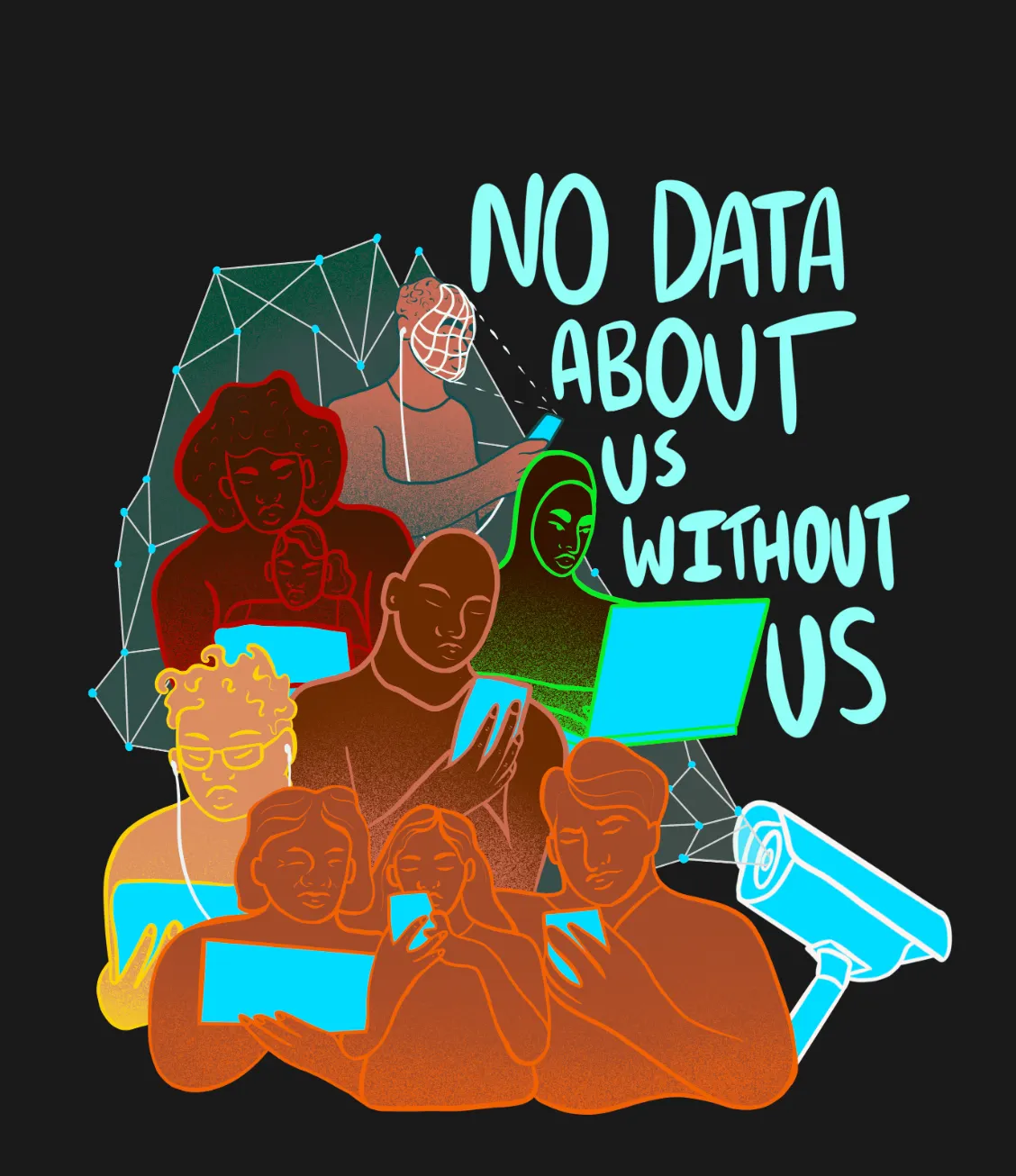Entretien avec les concepteurs de Te Estamos Grabando
Le programme, lancé en partenariat avec l'Université EAFIT, réunit 50 "sprinters" et experts en la matière une fois par semaine pour discuter de la numérisation de la sécurité urbaine à Medellín.
%20(1).jpeg)
Photo par Adriana Lasso-Harrier
Te Estamos Grabando, notre premier sprint de recherche et programme d'engagement communautaire à Medellín, en Colombie, vient d'atteindre la moitié de son parcours. Lancé en partenariat avec l'Université EAFIT , ce programme réunit une fois par semaine 50 « sprinters » et experts du sujet pour discuter de la numérisation de la sécurité urbaine à Medellín. Nous avons rencontré Laura García Vargas et Santiago Uribe Sáenz, membres de l'équipe d'Edgelands et animateurs et concepteurs principaux du sprint de recherche, pour discuter de leurs motivations et de son déroulement.
Qu'est-ce que « Te Estamos Grabando » ? Et qu'est-ce qu'un « sprint de recherche » ?
Santiago : Te Estamos Grabando est un nouveau programme conçu par Edgelands pour comprendre empiriquement la situation de la surveillance et de la sécurité numériques à Medellín. À cette fin, nous avons réuni un groupe de plus de 50 jeunes de la ville pour participer à notre sprint de recherche. Cela signifie que nous allions la rigueur et la qualité de la recherche universitaire à l'énergie, à la vitalité et au pouvoir transformateur des jeunes pour réaliser une immersion investigatrice des enjeux et des questions sur lesquels nous travaillons au sein d'Edgelands et que nous avons élaborés avec les acteurs clés de la ville. Nous espérons qu'à l'issue des huit semaines de travail, les participants produiront un manifeste pour inscrire ces questions à l'ordre du jour des décideurs et auront mené à bien un projet de recherche pour approfondir ces questions.
Quelles sont les motivations d’Edgelands pour lancer ce programme auprès des jeunes de Medellín ?
Santiago : Medellín est une ville confrontée à d'importants défis et contradictions. D'une part, elle est considérée comme une ville très innovante en termes de technologie et de numérisation et présente des niveaux avancés de développement et de bien-être humain. D'autre part, il existe encore d'importants défis en matière de sécurité et de coexistence qui affectent de manière disproportionnée la jeunesse de la ville. Au cours de l'été 2021, l'équipe d'Edgelands a mené une recherche pour diagnostiquer la situation de la sécurité, de la numérisation et de la surveillance à Medellín. Nous avons discuté avec des experts et des citoyens de Medellín qui, d'horizons différents (universitaires, gouvernement, organisations de la société civile, etc.), s'intéressaient à ces questions. Grâce à leurs connaissances, leurs expériences et leur travail, nous avons pu dresser un panorama de la situation et des expériences des jeunes de Medellín et de la manière dont l'(in)sécurité de la ville, la surveillance numérique et les structures de pouvoir les affectent.
Laura : L’objectif d’Edgelands avec ce sprint est de créer un espace où les jeunes de la ville pourront réfléchir et échanger avec des experts sur certains aspects de la transformation numérique que connaissent les villes. C’est également un espace où ils pourront réfléchir et faire des recherches sur certains aspects de cette interaction qui les intéressent, afin de contribuer à la formation de citoyens plus informés sur ces questions.

Comment le programme est-il conçu ?
Laura : Le sprint se déroule en deux parties : une partie théorique et conversationnelle, et une partie de recherche. Dans la première partie, les participants rencontreront différents experts sur le thème de la semaine pour s'informer et discuter des questions fondamentales liées au concept – et à la pratique – de la sécurité et de la coexistence citoyennes et de la surveillance numérique. Dans la deuxième partie, les participants sont divisés en sept groupes, chaque groupe étant encadré par un mentor. L'objectif de cette deuxième partie est de permettre aux participants d'approfondir leurs compétences d'enquête et de renforcer leurs connaissances citoyennes sur la sécurité et la coexistence citoyennes .
Santiago : Nous nous inspirons des marathons de recherche du Berkman Klein Center for Internet and Society de l'Université Harvard. Nous combinons perspectives théoriques et pratiques et réunissons des participants et des experts de nombreuses disciplines et du monde entier. Le marathon de recherche est conçu comme une « salle de classe mondiale » où des jeunes de toute la ville et de toutes les disciplines se réunissent en présentiel et virtuellement pour un apprentissage mutuel et un dialogue ouvert.
À quoi ressemble une séance typique ?
Santiago : Les sessions sont généralement divisées en deux parties : dans la première partie, les experts présentent un sujet ou posent une question liée à leur domaine de travail et/ou de recherche. Dans la seconde partie, les participants sont répartis en groupes et chaque groupe se voit attribuer un expert pour un dialogue direct avec les participants au cours duquel ils peuvent poser des questions, discuter et échanger des idées et, de manière générale, établir un dialogue direct avec les experts et les autres participants. En dehors de ces sessions d'ancrage, les participants sont répartis en groupes de travail sous la direction d'un mentor. Au sein de ces groupes de travail, ils développent des projets de recherche sur des sujets sélectionnés par les groupes et leurs mentors.

Qui sont nos partenaires et intervenants invités ?
Laura : Nous organisons ce marathon avec le Centre d'analyse politique (CAP) de l'Université EAFIT. Le CAP est un pôle de connaissances qui vise à combiner enseignement, recherche et projection sociale pour contribuer, conformément à la mission de l'Université, au progrès social, économique, scientifique et culturel de la ville, de la région et du pays. Chaque semaine, les invités sont des experts nationaux et internationaux. Ils sont experts, soit parce qu'ils ont travaillé sur le sujet, soit en raison de leur expérience quotidienne.

Quelles sont les questions sur lesquelles les étudiants effectuent actuellement des recherches ?
Laura : Lors des séances de recherche, nous avons sept groupes. Avec l'aide d'un mentor, chaque groupe d'étudiants réfléchit à une question qui les intéresse concernant cette intersection. Par exemple, le rôle des médias dans la couverture de l'actualité sécuritaire et l'utilisation des technologies en ville, ou encore l'utilisation des données générées par les caméras de surveillance et autres technologies de l'espace public.
Y a-t-il eu des surprises en cours de route ?
Santiago : Je suis surpris par nos participants ! Ils viennent d’horizons et de disciplines très divers et ont des intérêts variés. Ils sont actifs dans leurs communautés et leurs universités, et j’ai été surpris par la qualité des questions et des discussions qu’ils posent lors des séances.
Laura : Que de bonnes surprises : le niveau élevé d'engagement et d'intérêt des participants pour les différents sujets, et leur participation aux discussions. La diversité des participants, par exemple en termes de professions, de quartiers et de goûts artistiques, a également été remarquable.

Comment se terminera le programme ?
Santiago : Le Marathon de la Recherche se terminera le 1er décembre par un événement spécial (c'est une surprise, plus d'informations ultérieurement). Le marathon se conclura par la présentation des projets de recherche sur lesquels les participants ont travaillé en groupe et par un manifeste que nous présenterons aux autorités municipales et aux décideurs afin de les appeler à l'action.
Comment d'autres personnes qui vivent à Medellín et qui n'ont pas pu participer au programme peuvent-elles participer aux événements Edgelands ?
Santiago : Vous pouvez consulter notre site web et nos réseaux sociaux où nous publions des actualités et des mises à jour. Nous avons également enregistré les sessions du marathon de recherche et les publierons sur YouTube et notre site web pour que tout le monde puisse y accéder. Nous organiserons une séance de clôture du marathon, des ateliers et d'autres événements que nous annoncerons en temps voulu.
Laura : Début 2022, nous organiserons de nombreuses autres activités passionnantes à Medellín. Atelier de données, explosions artistiques et bien plus encore. Restez connectés sur nos réseaux sociaux pour découvrir les prochains événements.



